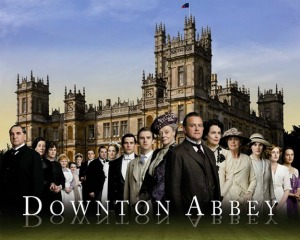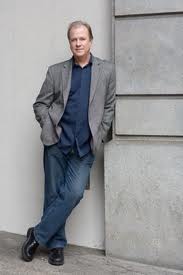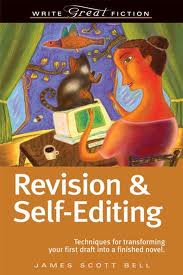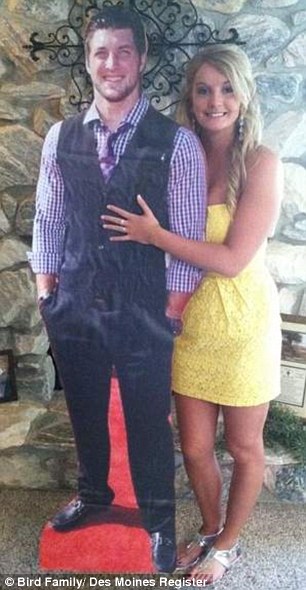
by Jason Joyner | Jan 9, 2013 | Blog, Downton Abbey, links, writing craft, Writing Wednesday
Welcome to Writing Wednesday.
Today I was going to write an inspired post. Then I saw this awesome article on Copyblogger by Matthew Gartland.
 Then I said screw it.
Then I said screw it.
Leave here and go read that article. It talks about what I wanted to in a much better way, and it tied it into the marvelous Downton Abbey. Seriously. Whether you’re a copy writer, a novelist, or some other content creator, that article is boss.
That reminds me, I still haven’t seen the Season 3 opening yet. No spoilers please!
Thanks to Rachelle Gardner for tweeting that article out.

by Jason Joyner | Dec 20, 2012 | authors, Blog, meme me, writing craft, Writing Wednesday
It’s time for a little fun. My friend Nicole Petrino-Salter tagged me for a blog meme. Whoo-hoo! It’s nice to be recognized and invited to play. So here it goes.
“The Next Big Thing”
1. What is the title of your next book/work?
My next book is my current book – Darkness Under The Moonlight. I’ve finished the first draft, but it’s under revision so it’s not quite done and still “next” in my mind. I did just have a cool idea for a sci-fi/medical thriller, but it is definitely in the gestational stage.
2. Where did the idea come from for the book/work?
My sick mind? I’m not sure what I was doing, but I had the picture of a body floating in the ocean, discovered by a fisherman hitting it with his boat. Who was the victim? Why did he die?
3. What genre does your book/work fall under?
Mystery/Suspense/Thriller. I guess there are differences – I’m trying to figure out where it fits exactly.
 |
| Camilla’s ready to go. |
4. What actors would you choose to play the part of your characters in a movie rendition?
Jenna Dawson – I need an athletic person for the role. Right now I’m thinking Camilla Luddington or Alex Schlereth.
Derek Stephens – I’m not sure on this one. Perhaps Armie Hammer, just a little less on the leading man looks.
5. What is a one-sentence synopsis of your book?
A medical student travels to Thailand to discover the mystery behind the death of her missionary brother.
6. Will your book be self-published or represented by an agency?
I’m going to shoot for an agency. If it gets good feedback but the market isn’t favorable, I would consider self-publishing.
7. How long did it take you to write the first draft of the manuscript?
*cough*Seven years, next question*cough*
8. What other books would you compare this story to within your genre?
I’d love to be compared to Davis Bunn’s Rare Earth due to the exotic local and human element. If I could approach his level of writing skill, all the better.
9. Who or what inspired you to write this book?
I had recently gotten back into the hobby of creative writing and I had the images that were the genesis of the story. I fiddled around with it until I hit on the theme of human trafficking. With that issue at the heart, even though I got discouraged at times, I knew it was something important to finish.
10. What else about the book might pique the reader’s interest?
I’m trying to blend international intrigue, medical suspense, and a heart-grabbing current issue into something readers will enjoy.
Now I’m tagging John Otte, Emileigh Latham, and Morgan Busse, to play. Okay?
—

by Jason Joyner | Oct 10, 2012 | Blog, blogging, conundrums, platform, writing craft, Writing Wednesday
I love a rollicking dialogue on the web.
Last week Rachelle Garnder
posted about the need for authors to have a platform, the hot topic of 2012. The first commenter was none other than James Scott Bell, author and writing teacher and a man on the forefront of the churning waters of the changing publishing seas.

He opined that writers should focus on writing to build their quality, publishing short stories and books. He suggested that blogging was the biggest time-suck for authors, especially unpublished ones. The return on blogging was perhaps there in 2007, but not in 2012.
Another well-known writing blogger, Jody Hedlund,
answered with a post on this issue. She took a more measured approach to blogging, relating side benefits that can come from blogging: networking with other writers, finding a voice, and learning about the industry. She couldn’t point to her blog being a major reason behind her success, but felt it did play a role.
The irony of this discussion being played out on blogs is not lost on me.
Bell answered back on Jody’s blog, conceding that there are ancillary reasons for keeping up a blog. He held to his main point about a blog being a poor option in creaing a platform. He noted that Rachelle and Jody have created strong platforms through their blogs, but that is a rare position to create a new blog that really puts someone’s name out there.
I’d have to agree with Jim. I’ve been blogging since 2006. The advice at the time was to start blogging and build a base that would end up following you into publishing.
Well, I’ve been pretty consistent through the years. I wish I could say I’ve created a large tribe that would spread my message hither and yon. Alas, that’s not the case. I did have Anne Rice comment on a blog post once. Whoo-hoo!
So if I was only doing this to build a platform, it hasn’t played out very well.
The thing is, I also agree with Jody. Blogging has done a lot for me even if it isn’t counted by numbers.
Through blogging I’ve been introduced to several people online that have continued to encourage and challenge me in my writing life. It has kept me disciplined in writing regularly, even when my fiction writing sat idle for a couple of months at a time. I’ve reviewed a lot of books through here, so it has fed my reading habit. I would suggest it helped open some other doors, like writing a column for the local paper.
I’ve seen some friends develop a platform through their blogs.
Mike Duran started around the same time. He’s managed to build a healthy community of commenters that make it an intelligent site to follow.
Becky Miller is a go-to person in the realm of Christian speculative fiction since she works tirelessly to promote it.
Jordyn Redwood found a niche by answering medical questions on her blog, which plays into her primary job as an ER nurse and her medical suspense. These folks have managed to build something special.
But the common thread here is that I’ve interacted with each of them through the years because I have a blog.
If I were talking to a brand new writer, I probably would point them to Jim’s advice about putting their effort into fiction that they can start to get out there. I’ve been doing this too long to quit, although I’ve tried to do a two posts a week schedule this year to stay consistant but not as pressured as when I tried to do 3-4 a week.
Most of my opinions are similar to the comment threads of the blog posts by Rachelle and Jody. If you’re interested in the discussion, check those out.
As someone who has done the blogging thing for a while, I couldn’t resist throwing out my experience. If I had to do it over again, I wish I had spent a little less time blogging and more time on writing, but I don’t think I’d say I wouldn’t blog at all.
What say you? What value does blogging have for a fiction author over other writers or professionals? Do you lean toward Jim or Jody?
—
by Jason Joyner | Oct 4, 2012 | ACFW, Blog, conference, Dallas 2012, making the head spin, writing craft, Writing Wednesday
Back to real life.
That’s the reality as I sit at my computer and type out another blog post. But during four days in September, reality seemed different – like an alternate dimension. It was a place where one could discuss romance, murder, angels, dragons, superheroes, slaves, plucky Amish girls, and the occasional odd character.
That was the 2012 American Christian Fiction Writers Conference in Dallas.
It was my first conference. With 700 attendees it seemed daunting at times to this new author with a baby-fresh manuscript clutched in his trembling hands (it was more a leg that trembled, but that’s for another time). Facebook makes it seem we’re all friends, but even though I recognized many people thanks to social media, I didn’t really know anyone there.
Thankfully that changed.
The great thing about this conference is that it is rooted in the Christian part of its name. There are worship times, devotions, a prayer room, and most importantly there are Christians. It seems obvious, but the people there demonstrated Christ-like behavior in welcoming everyone. From the first-timers orientation to sitting at a meal with total strangers and leaving as friends at the end, people usually gave a lot of grace to each other. There was always an easy way to do introductions if you were stuck: Where are you from and what do you write?
The emcee, Brandilyn Collins, did a great job making people feel engaged in the meals and main sessions. She let us all know that it was okay to argue with your characters because we had the whole hotel floor to ourselves, without any Normals around to wonder what is wrong with you. We were advised to not plot murders in the elevator or main lobby, but otherwise you were with people who got you. People who understood your imagination, your fascination with stories, and the need to go hide as an introvert every so often.
I’ve seen other conference attendees post their take-away points from Dallas, and writers are nothing if not imitators. What are things that struck me?
1. There are a lot of people with similar dreams. Seven hundred might not seem like a lot, but to gather that many like-minded folks to focus on writing was way cool. As a writer I’m not alone in my aspirations. Many others are walking a similar path, treading behind people who are ahead in the journey but are willing to give back. One great point is all the effort made by volunteers to staff workshops, mentoring visits, and just giving to the newbie writers walking around awestruck.
2. There are lot of different people in the ACFW… but there could be a lot more diversity too. There is a wide variety of writers there, but the majority wrote women’s fiction, Amish or historical fiction, or romance. Nothing wrong with that – I’ll read any of those if they’re well written (disclaimer: I haven’t read an Amish novel, not because I haven’t found a well-written one, I just haven’t looked). There’s obviously a huge market for those books. The ACFW started as the American Christian Romance Writers after all.
The guys were outnumbered 80% to 20% probably, but men who had been in the past said this was a huge difference to prior conferences when the males could fill 1-2 tables. We held our own though ;). There were even fewer minorities. The speculative fiction writers would glom on to each other for support. Horror? Yeah, I didn’t meet anyone who wrote that (maybe Mike Duran counts).
I’m not saying this to criticize the ACFW. It is an organization representative of its market – the people who frequent Christian bookstores. In other words, white middle-class evangelicals. The larger problem is that those churches don’t always reach out of their demographic, but that’s a much larger issue. I hope the ACFW can be a champion for diversity in the stories they tell to nudge the evangelical camp toward a larger acceptance.
3. I really need to write speculative fiction. Not for great sales numbers, but for the cool company. My book is suspense. I felt more kinship with the spec fic crowd. Everything I love to read or watch is led by spec fic, so I am surprised I don’t have inspiration to write it. Maybe someday.
4. There’s a lot to learn. I’ve been in intense programs before. A physician assistant program is like drinking from a fire hose. The writing program isn’t that overwhelming. Still, applying technical information in an artistic way is crossing the left brain with the right brain. That creates eddies in brain waves. I want to take what I gleaned and polish my novel up as much as I can. It all can’t go into it though. There was too much to use it all. I have to make choices.
I don’t like these kind of choices.
5. ACFW is working very hard. The conference was a huge success. I can’t imagine pulling together all of the logistics for this. There were leaders and there were a ton of volunteers helping things come off. There were a couple of little snafus. Probably more behind the scenes got missed than most people would see but on the outside it came off great. I know the timing was right for me to go this year. I wish I had gone earlier though.
I met online friends such as John Otte and Mike Duran and enjoyed getting to know them personally. I made new friends like Morgan Busse and Joe Courtemanche that made the weekend enjoyable and thought-provoking. And I got double-crossed in a mean game of Fiasco.
I’m ready for next year in Indianapolis.
—

by Jason Joyner | Sep 5, 2012 | Blog, revision can be fun, writing craft, Writing Wednesday
Two weeks until the conference.
No big deal or anything, right?
I know I don’t have to have my first revision done before I go to the ACFW Conference. If I am lucky enough to get some interest, I will have a little time to get it finished. Still, it provides a handy deadline and incentive to get it done. I am one of those writers who works better under pressure.
 Just as there are many helps out there for writers when plotting, I’m finding a lot of resources for revision. I’d like to pull together a post of links for helpful sites, but guess what? I’m on a deadline. 😉
Just as there are many helps out there for writers when plotting, I’m finding a lot of resources for revision. I’d like to pull together a post of links for helpful sites, but guess what? I’m on a deadline. 😉
I’ve been impressed with the American Christian Fiction Writers member resources. I signed up as a member a few years ago but I wasn’t as serious and didn’t take advantage of the services. Right now I have signed up for their novel editing loop on email. They run this every couple of months. They have you set a goal and report your pages edited to give accountability and encouragement. They also offer mini-lessons on editing basics. There are handy tidbits in there.
 The one book I’ve fully read and used is James Scott Bell’s Revision and Self-Editing.This helpful guide gives an overview of Bell’s fiction teaching and applies the knowledge to the revision stage of writing. He is one of my favorite writing guides, so I’m happy to dig into it. I’ve also read the ubiquitous Self-Editing For Fiction Writers by King and Browne, but that was a long time ago.
The one book I’ve fully read and used is James Scott Bell’s Revision and Self-Editing.This helpful guide gives an overview of Bell’s fiction teaching and applies the knowledge to the revision stage of writing. He is one of my favorite writing guides, so I’m happy to dig into it. I’ve also read the ubiquitous Self-Editing For Fiction Writers by King and Browne, but that was a long time ago.
Today Nathan Bransford had a helpful post about revision. When you get to the point that you hate your novel, that you can’t imagine another change – well, then you’re close to being ready. Go check the post out for yourself.
And in closing, if you didn’t see Bransford’s Publication Process in GIF form, then you missed one of the best posts for writers in a long, long time.
I’d say more, but those revisions aren’t happening by themselves. Back to the grindstone.
—
Do you have any specific revision resources you like? Please share them in the comments below.
—

by Jason Joyner | Aug 29, 2012 | 3-D, Blog, characters, conference, revision can be fun, writing craft
It is time to revisit some old friends of mine.
You’d think after working on a novel for 7 years that I’d know these people pretty well by now. However, sometimes you don’t really ask the questions that get you deep into a relationship.
When I’ve had critiques done of my work so far, my main character Jenna usually comes across as well-rounded. She was a little too head-strong initially, but I think I’ve worked some of her rough edges down.
 |
| I think Tebow is more than just a cutout |
Now the male lead and her romantic interest, Derek? He’s another story. I think I start off showing the differences he has compared to Jenna, but he later on blends into being whatever she needs him to be. I think I lost track of who he was. In doing so, I don’t think he is very three-dimensional.
I know I love it when a book has numerous 3-D characters, people who reflect reality and could be someone you know in real life. The cardboard cutouts in a book get boring fast.
This is the right time to recognize this. I’ve got the whole book in front of me to show who Derek is in more depth. Why does he accompany Jenna to Thailand? What does he want?
I’m not settling for two 3-D characters either. I want to evaluate my secondary characters and see what I can do for them. One or two of them are fairly well-rounded. I’ll have to evaluate that when I get to them.
I am finding that the first draft is hard to get down. The framework of the story needs a foundation, and that can be tricky for me at times. The revision seems to be going smoothly for me. Now that I see the outline, I can work on filling the
meat out onto the bones. And mix my metaphors.
What do you do when it comes to creating depth in your characters? How do you beef them up in the revision process?
—






